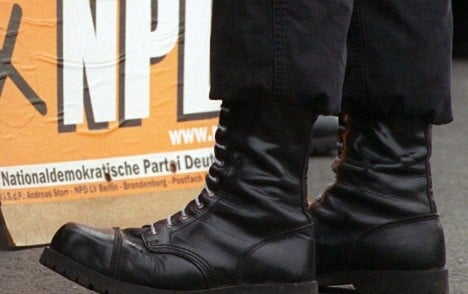“There’s a potential for violence among neo-Nazis which we cannot underestimate,” German Interior Minister Hans-Peter Friedrich told Der Tagesspiegel newspaper on Sunday.
“Our preliminary results [for 2012] show a rise of around four percent in politically motivated far-right crimes, up to around 17,600,” said Friedrich. Of those, the number of far-right violent crimes was up two percent on the previous year, he added.
“There’s a slight upward trend with politically motivated far-right crimes and violent acts,” he said.
The German government has in the past been accused of downplaying far-right violence. Official police statistics record 63 murders by far-right extremists since 1990, but research published last week by Der Tagesspiegel and Die Zeit newspapers suggests the number could be over double that, at 152.
The papers said far-right motivated violent crimes were often not recorded as such by courts and police. Friedrich said on Sunday he would re-address the issue of classifying what constituted far-right violence when he next met with the interior ministers of the German states.
However, despite the growing threat of far-right violence, the interior minister repeated his opposition to banning the neo-Nazi National Democratic Party (NPD).
Friedrich, along with the rest of Chancellor Angela Merkel’s cabinet, agreed this week that the ruling coalition would not support the latest motion to ban the far-right NPD, led by the German states in the Bundesrat upper house of parliament.
German Finance Minister Wolfgang Schäuble also voiced opposition to a NPD ban on Sunday, and said the move would have the opposite from the desired effect.
“We run the risk of creating a problem which at the moment solves itself [without intervention],” Schäuble told the Welt am Sonntag newspaper. In normal times in Germany, he said, right-wing extremists usually shot themselves in the foot.
Schäuble said he doubted whether a party in general could be classified as unconstitutional – the legal basis of the move to ban the NPD – and whether a ban could be successfully enforced.
DAPD/The Local/jlb




 Please whitelist us to continue reading.
Please whitelist us to continue reading.
Member comments